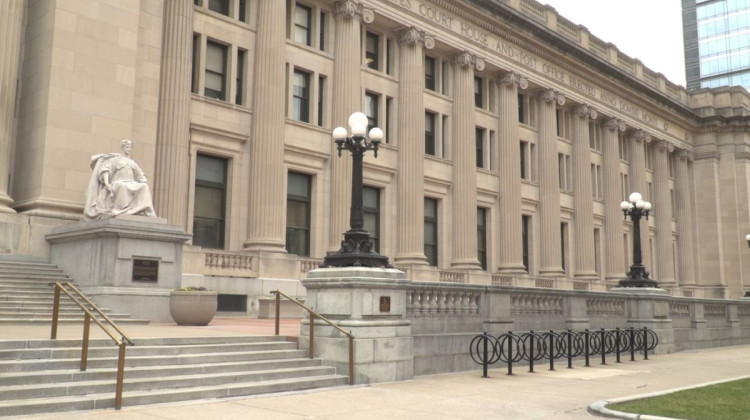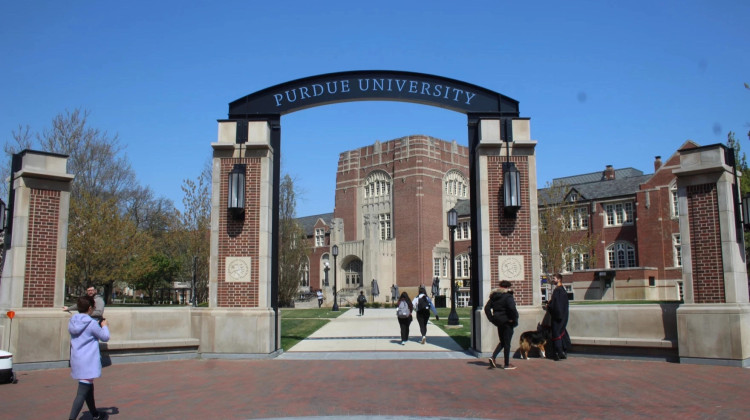
The Birch Bayh Federal Building & U.S. Courthouse. Judge Sarah Evans Barker said that the the plaintiffs’ claims “are not ripe,” and that they need to demonstrate concrete injury before proceeding.
Alan Mbathi / IPB NewsA U.S. District Court judge in Indianapolis dismissed a lawsuit challenging a controversial new state law that university professors say violates their constitutional rights.
The law requires faculty to include a variety of opposing political viewpoints in the classroom or risk losing their tenure protections. It also creates a system for students to submit complaints to the Indiana Commission for Higher Education about faculty they think are not following the law Indiana Attorney General Todd Rokita, who intervened in the case last week, said the law will foster diversity of thought.
The American Civil Liberties Union of Indiana is representing four Indiana professors who say the law violates their First and Fourteenth Amendment rights.
While the lawsuit targeted the trustees of Indiana and Purdue Universities as the enforcers of the new law, Rokita said the suit should be dismissed because the professors have not been harmed.
Judge Sarah Evans Barker agreed that the the plaintiffs’ claims “are not ripe.”
She cited a federal rule that limits courts to resolving “concrete disputes” rather than “answering legal questions, however important” before actual injuries have occurred. In other words, the professors need to show that their constitutional rights have already been infringed.
The ACLU argues that’s already happening. The very threat of punishment, it said, is already causing professors to self-censor.
Barker cited a 2013 US Supreme Court case which ruled that “respondents cannot manufacture standing merely by inflicting harm on themselves based on fears of a hypothetical future.” Since the Boards of Trustees haven’t yet created policies for how to comply with the law, she said it’s impossible to know if “Plaintiffs do in fact have an ‘objectively good reason for (…) self-censoring.’”
In a statement last night, the ACLU said it was “disappointed” by the dismissal and is considering next steps. Communications Manager Laura Forbes declined a request for interview.
 DONATE
DONATE







 Support WFYI. We can't do it without you.
Support WFYI. We can't do it without you.